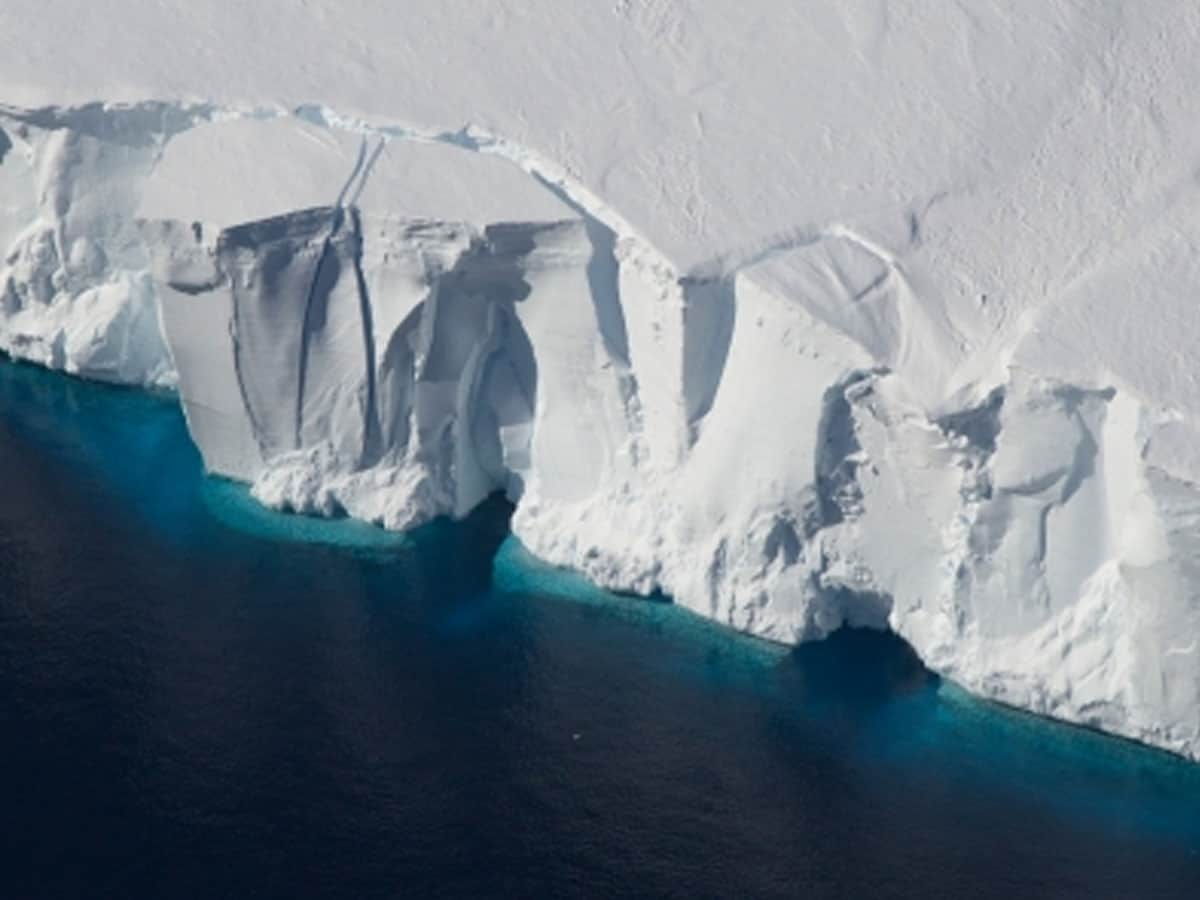London: As local weather change is making temperatures soar, greater than a 3rd of the Antarctic’s ice shelf could possibly be vulnerable to collapsing into the ocean, and inflicting international sea-levels to rise, new analysis has proven.
The examine, led by a researcher on the College of Studying in England, discovered that if international temperatures attain four levels Celsius above pre-industrial ranges, 34 per cent of the world of all Antarctic ice cabinets — round half 1,000,000 sq. kilometres — together with 67 per cent of ice shelf space on the Antarctic Peninsula, can be vulnerable to destabilisation.
Ice cabinets — Larsen C, Shackleton, Pine Island and Wilkins — have been recognized as most at-risk beneath four levels Celsius of warming, resulting from their geography and the numerous runoff predicted in these areas.
Limiting temperature rise to 2 levels Celsius, as mandated by the United Nations beneath the Paris Local weather settlement, would halve the danger and doubtlessly keep away from vital sea stage rise, mentioned the examine, revealed within the Geophysical Analysis Letters journal.
“If temperatures proceed to rise at present charges, we might lose extra Antarctic ice cabinets within the coming a long time,” mentioned Ella Gilbert, a analysis scientist on the varsity’s Division of Meteorology.
“Limiting warming won’t simply be good for Antarctica — preserving ice cabinets means much less international sea stage rise, and that’s good for us all,” she added.
When melted ice accumulates on the floor of ice cabinets, it could actually make them fracture and collapse spectacularly.
Ice shelf vulnerability from this fracturing course of was forecast beneath 1.5 levels Celsius, 2 levels Celsius and four levels Celsius international warming eventualities, that are all doable this century.
“Ice cabinets are essential buffers stopping glaciers on land from flowing freely into the ocean and contributing to sea stage rise. After they collapse, it’s like a large cork being faraway from a bottle, permitting unimaginable quantities of water from glaciers to pour into the ocean,” Gilbert mentioned.
“We all know that when melted ice accumulates on the floor of ice cabinets, it could actually make them fracture and collapse spectacularly,” Gilbert mentioned.
